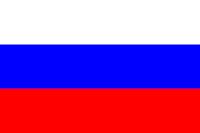This month's NATO summit in Bucharest failed to produce a consensus in favor of proposals to offer Membership Action Plans (MAPs) to Georgia and Ukraine. The pro-MAP faction within NATO, led by the United States and also including Canada and most Eastern European countries, failed to overcome concerted resistance from most of the Western European member-states, led most vociferously by Germany and France. At the conclusion of the conference on April 3, NATO issued a cryptic joint communiqué stating that it "welcomed Ukraine's and Georgia's Euro-Atlantic aspirations for membership and agreed that these countries will become members of NATO," but without specifying exactly what procedure would lead to this outcome. Meanwhile, Russia's outgoing President Vladimir Putin, in Bucharest for a meeting of the NATO-Russia Council, made no secret of his strong opposition to Georgian or Ukrainian NATO accession.
The curious sequence of the open antagonism on display in Bucharest, followed by the surprisingly pro-accession language of the joint communiqué cited above, combined with the apparent agreement between the Franco-German and Russian positions, has led to an outpouring of speculation in the Western press about the actual significance of the NATO summit. Did the Franco-German faction decisively foreclose NATO expansion into the former Soviet region? Or does the communiqué instead mean that in the long run the United States will indeed bring its post-Soviet protégés into the NATO fold? And what exactly were the reasons for European (and in particular Franco-German) opposition to the MAPs?
These questions likewise engage the attention of Russia's independent journalists, recent articles by three of whom are summarized in the following short piece. The analysis these Russian journalists offer seem to suggest some distinctive features of the internal Russian debate about NATO expansion. First, the impression that Russia has played its hand badly is more widespread among Russian observers than the Russian government might care to realize. Second, the three journalists display more sympathy to the Western European members of NATO than to the United States. Third, perhaps because Russian journalists have more actual experience in post-Soviet neighboring countries, they focus extensively on internal political developments in Georgia and Ukraine than do their Western counterparts.

